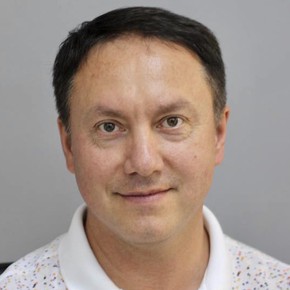Biography
Sergey Polosenko is a civilian resident of Samara, who, because of his faith in Jehovah God, was considered an extremist by law enforcement officers. After the search, the man was detained and placed in a pre-trial detention center, where he stayed for more than a year. The court sentenced him to 7 years of imprisonment. The appeal approved this decision, and the believer was sent to a penal colony in Mordovia to serve his sentence.
Sergey was born in 1968 in the city of Angren (Uzbekistan) in a large family—his parents raised 10 children. Three years after Sergey was born, the family moved to Petrozavodsk (Karelia), and later, in 1976, to Chapaevsk (Samara Region). Sergey's parents and two sisters are no longer alive.
As a child, Sergey was a versatile child: he played hockey, went in for cycling, loved to play the guitar, was fond of photography. After school, he studied as a bricklayer, and then entered a school in Kuibyshev, where he received the profession of a train electrician of the fifth category. In 1998, after graduating from the Samara Institute of Railway Transport Engineers, he acquired another specialty—an engineer-economist.
Sergey worked as a bricklayer, a train electrician, later as a head of a train on the Samara-Moscow route, and from 2009 until his arrest he was the director of a beauty salon.
Sergey's interest in the spiritual was instilled in him by his mother from childhood. Love for God and the Bible prompted him to become a Christian at a young age.
Sergey met his future wife Lidiya in childhood—he was friends with her brother. Spiritual guidance received from her mother, as well as a deep personal study of the Bible, motivated Lydia to embark on the Christian path. She married Sergey in 1993. She is a self-employed hairdresser. Her hobbies are creating hairstyles, improving her professional skills, reading books and learning new things. Also, Lidiya loves to travel the world, walk in the fresh air, play educational board games with friends and sing songs with a guitar.
The criminal prosecution of Sergey caused bewilderment and indignation among his relatives and colleagues. Employees and clients of the beauty salon are outraged by what is happening, as they respect Sergey and know him well as a fair leader and a respectable family man.
